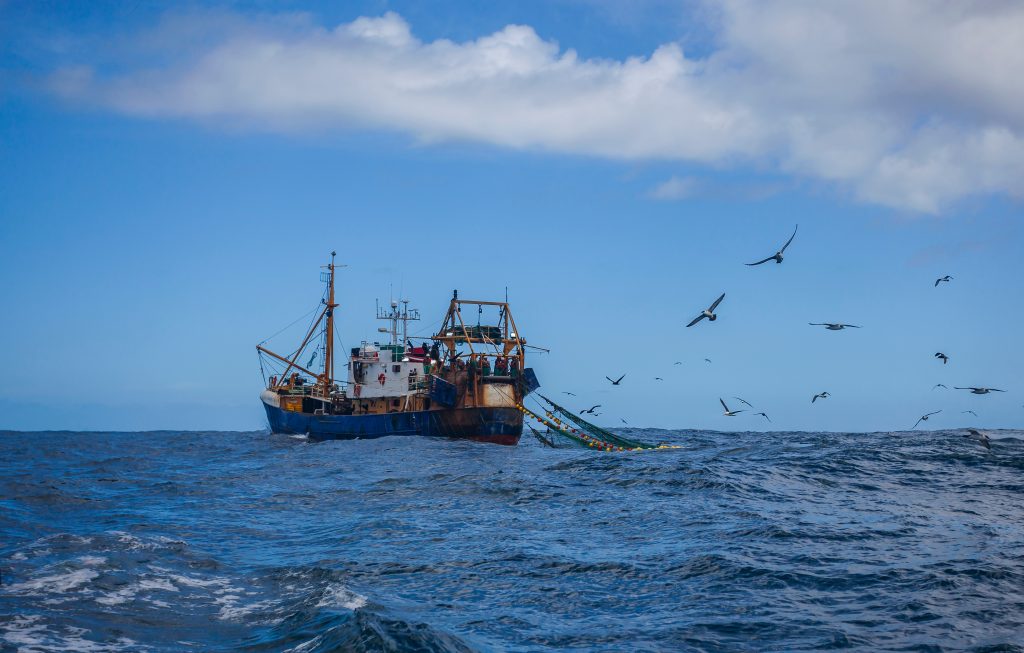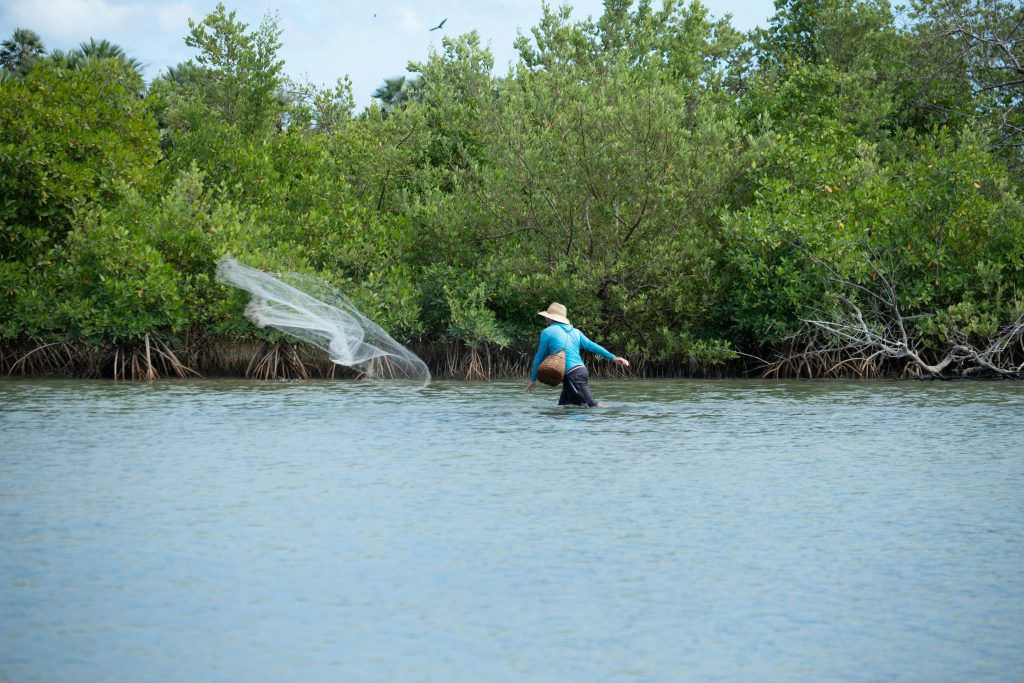Marine
Oceans cover more than two-thirds of the earth’s surface, and the fish that live in their waters are crucial to the world’s economy, health and environment. Figures suggest that three billion people, predominantly in low-income countries, depend on fish as their primary source of protein, and over 500 million people depend on fisheries and aquaculture for their livelihoods.
What we will support:
Under our Marine programme, we support initiatives that work to halt and restore declining fish stocks by:
- Stopping destructive and illegal fishing.
- Supporting sustainable and small-scale fisheries.
Preference will be given to initiatives working to influence fisheries policy, projects that halt the decline of fish stocks that communities in the Global South rely on, and those working to bring about sustainable fisheries in Wales.
We predominantly support strategic initiatives, but also consider practical local projects. The protection of mangroves and seagrasses to benefit local fisheries is also a component of our Marine Programme.
Strategic Projects
We will consider applications for strategic projects that are working on addressing marine issues at a wider or international scale. These could include:
- Working on international or regional marine policy
- Campaigning for improved practices in the fishing industry and its supply chains
- Exploring different fishing practices and techniques
- Improving information exchange to eradicate illegal unreported and unregulated fishing

Applicants should be able to provide the following:
- Evidence of previous successful strategic programmes e.g. an attributable change in policy or improved supply chain;
- For your proposed project, the specific measurable outcomes that you expect the programme to achieve, and the methods you will use to monitor these outcomes;
- The strategy put in place to ensure the sustainability of the programme’s objectives for the long term.
Click here for examples of strategic projects supported under our Marine programme.
Local Projects
Applications for local projects should demonstrate that they will positively impact upon the marine fisheries they are working to protect, and could include:
- Development of community-managed marine protected areas or community-led sustainable fisheries management
- Addressing local causes of over-exploitation of fish stocks and other seafood
- Creation of sustainable livelihoods for coastal and seafood dependent people
- Securing fishing rights or management rights for fishery-dependent communities

Applicants should be able to provide the following:
- Evidence of previous successful local programmes e.g., a demonstrable increase in fish stocks; implementation of a management plan; improved livelihoods and/or income levels of fishery-dependent communities.
- For your proposed project, the specific measurable outcomes that you expect the programme to achieve, and the methods you will use to monitor these outcomes;
- The strategy put in place to ensure the sustainability of the programme’s objectives for the long term.
Click here for examples of local projects supported under our Marine programme.
What we will not Fund
We are not able to offer funding for:
- Projects with conservation of non-fish species as the sole focus (e.g. dolphins, turtles or sea birds)
- Projects focusing on environmental education
- Projects based in freshwater fisheries (e.g. Lake Victoria)
- Research projects
- Projects based in countries that are not secure and politically stable. We are therefore unlikely to support projects in conflict-affected areas
- In addition, we only consider proposals from US-based organisations under exceptional circumstances, due to the higher availability of environmental funding in the US compared to the UK.
Applying for Funding
If you think that you are eligible for funding, please see the Environment – Application Guidelines page for guidance about how to submit a funding application.
Please note that all applications must be submitted to applications@waterloofoundation.org.uk.
